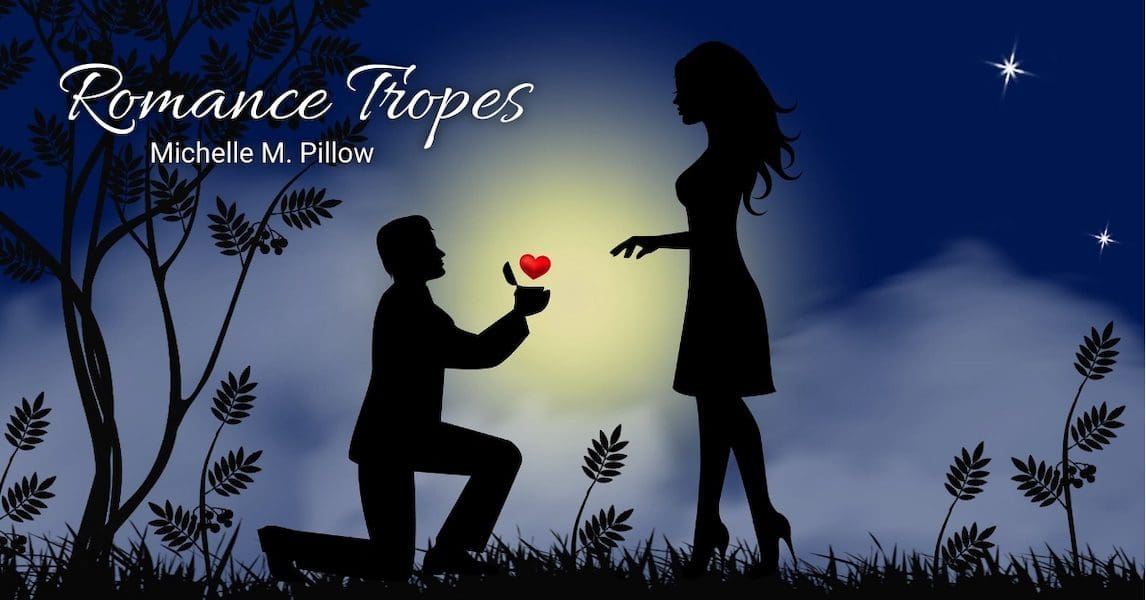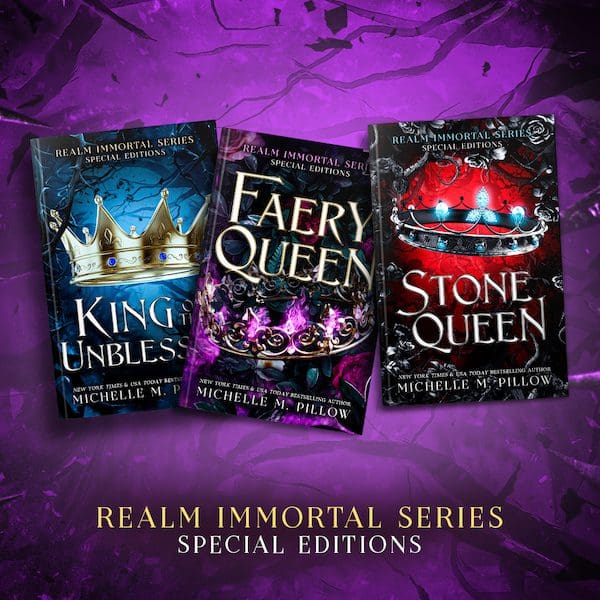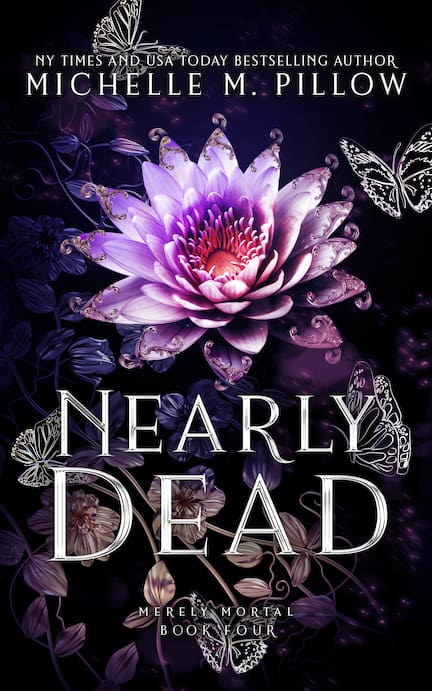Exploring and Defining Morally Grey Characters in Romance and Fantasy Novels

Do you love fantasy movies like Labyrinth but wish for an adult version where she stays with the goblin king? Meet the King of the Unblessed, a new adult high fantasy, epic adventure romance with a morally grey hero who warns you not to fall in love with him because he can never love you back.
Morally Ambiguous Characters
In a world of black-and-white morality, the morally grey hero (or heroine) is a refreshingly complex and nuanced character often found in romance and high fantasy novels. Acting as an unexpected protagonist, this morally ambiguous figure is becoming increasingly popular in the literary world. A hero that finds themselves having to make difficult decisions without worrying about being judged for them, their actions are often perceived as having shades of grey.
In recent years, the concept of a “morally grey hero” has become a popular trope in romance. This type of character is also often found in novels that feature romantic subplots, and serves as a foil to the traditional hero archetype. With their complex moral codes and ambiguous motivations, morally grey characters captivate readers with their complex personalities and inner struggles.
King of the Unblessed
Did you answer yes to the question above? Do you love movies like Labyrinth but wish for a more adult version where she wants to be with a goblin king (well, maybe)?
- full-length
- adult high fantasy
- epic adventure romance
- morally gray hero: king of the morally gray, actually
- woman in peril
Welcome to the Realm Immortal series!
Happy Reading!
Morally Grey Meaning
Defining a Morally Grey Hero(ine):
In romance novels, the protagonist is often seen as the hero, the character who embodies all of the desirable traits that make them attractive to their love interest. They are selfless, courageous, and always triumph over evil. However, over time, authors have started to explore a more complex and nuanced approach to character development. They now introduce heroes with morally grey attributes – characters that are neither entirely good nor completely evil.
However, as society evolves and storytelling becomes more complex, audiences crave characters with less black-and-white morality. Enter the morally grey hero.
Morally grey heroes are increasingly popular in romance novels because they demand more from readers. These characters force readers to take a second look at their own values and morals while considering if they would still root for someone whose actions may be questionable. These heroes challenge traditional ideas of what constitutes a “good” person by providing insight into how even well-meaning individuals can make choices that lead them down a path toward moral ambiguity.
A morally grey hero is a character who operates in a space where right and wrong aren’t always clearly defined. They may have good intentions but use questionable methods to achieve their goals or vice versa. These characters often grapple with their conscience, questioning whether their actions are justifiable.
Pros and Cons of the Archetype
Morally grey heroes are a popular archetype in fiction novels. These complex characters are neither entirely good nor bad, possessing qualities of both heroism and villainy. While they may be flawed, they often have redeeming qualities that make them compelling protagonists. However, this archetype has pros and cons that writers should consider.
On the pro side, morally grey heroes can add depth and complexity to a story. By creating a character who is not purely good or evil, authors can explore themes such as redemption, sacrifice, and the nature of morality itself. These characters also provide an opportunity for readers to challenge their own assumptions about right and wrong.
On the other hand, writing a morally grey hero can be challenging. It’s important to strike a careful balance between making them sympathetic without glamorizing their negative traits. An example of this is the serial killer or extremely criminally inclined protagonist.
Popular Morally Grey Character Examples in Mainstream
Popular characters in books and shows like You, Breaking Bad, and Dexter all have morally grey heroes but also contain romantic elements. The nature of these stories doesn’t make them romance novels. They’re cataloged under thrillers, and I’m using them as examples to show the extremes of the morally grey characters.
- In You, Joe is so desperate to be loved unconditionally that he’s willing to kill to get it. His redeeming quality is his protectiveness of children.
- Walter White from Breaking Bad starts off as an unassuming high school chemistry teacher diagnosed with cancer, desperate for money to provide for his family after his death, only to become a murdering drug kingpin. Initially, his desire to take care of his family is his redeeming quality.
- Dexter in Dexter is recovering from childhood trauma and is trained by a well-meaning adoptive father to become a serial killer who only takes out really bad guys. His redeeming quality is the fact he permanently stops bad guys, some worse than him.
It shouldn’t need to be said, but: I’m not saying serial killers and drug kingpins are “good guys” who should be able to do what they do. My moral compass is firmly in place. These are literary and performance extreme examples of the trope.
All of these books/shows make you question your own moral compass, regardless of where you end up on the argument. There is also the idea of freedom to be able to act outside the laws and societal codes for the name of good. (not that we would indulge in that in real life, right?)
Critiques of the Trope
The morally grey hero trope has become increasingly popular in romance novels in recent years. This trope features a protagonist who is not fully good or evil, but instead falls into a murky grey area where their actions are often morally questionable. While this type of character can make for an intriguing and complex story, some critics argue that it perpetuates harmful ideas about morality.
One critique of the morally grey hero trope is that it romanticizes immoral behavior. By portraying characters who do not adhere to traditional moral standards as heroes, authors may be sending the message that it is acceptable to engage in unethical actions as long as they ultimately serve a greater purpose. Additionally, some critics argue that the prevalence of this trope reinforces the idea that people must choose between being entirely good or entirely bad – without acknowledging that most individuals fall somewhere in between.
Despite these criticisms, many readers continue to enjoy stories featuring morally grey heroes.
Redemptive Potential
In the world of romance novels, morally grey heroes are a staple. These characters are often complex, with a mix of admirable qualities and not-so-admirable ones. They may have committed questionable acts in their past, but they also possess a redemptive potential that makes them fascinating to readers.
One reason why morally grey heroes are so popular is because they challenge the traditional notion of being a hero. In many stories, heroes are depicted as pure-hearted individuals who always do the right thing. However, morally grey heroes offer a more realistic portrayal of human nature. They make mistakes and sometimes do things that aren’t necessarily good or bad. This complexity makes them more relatable to readers who understand that life isn’t black and white.
Impact on Audience
These characters are often depicted as individuals who possess both admirable qualities and significant flaws, making them more complex and realistic than traditional heroes. While these characters may exhibit traits that are traditionally viewed as negative, such as selfishness or ruthlessness, they also display a willingness to take risks and make difficult decisions that ultimately benefit others.
One of the main reasons why morally grey heroes have such a strong impact on audiences is their relatability. Rather than being an idealized version of a hero, these characters feel like real people with real problems. This makes it easier for readers to connect with them on an emotional level, which is essential for creating truly memorable characters.
Conclusion: Benefits & Challenges
In conclusion, romance novels featuring morally grey heroes provide readers with an exciting and nuanced experience. These characters highlight the complexities of life and morality, ultimately encouraging readers to think about their own values. While these characters can be difficult for readers to relate to, they provide a relatable experience through their struggles and emotional journeys. As they move through their journey of redemption, it can be inspiring to witness them battling their inner demons and striving to become better people. Morally grey heroes remind us that life often involves making difficult decisions without clear answers and that navigating these choices is part of being human.




